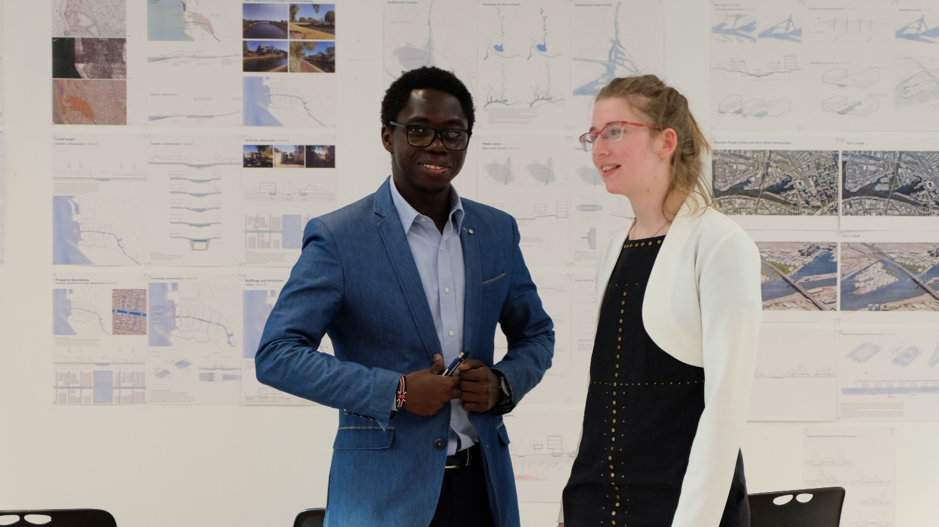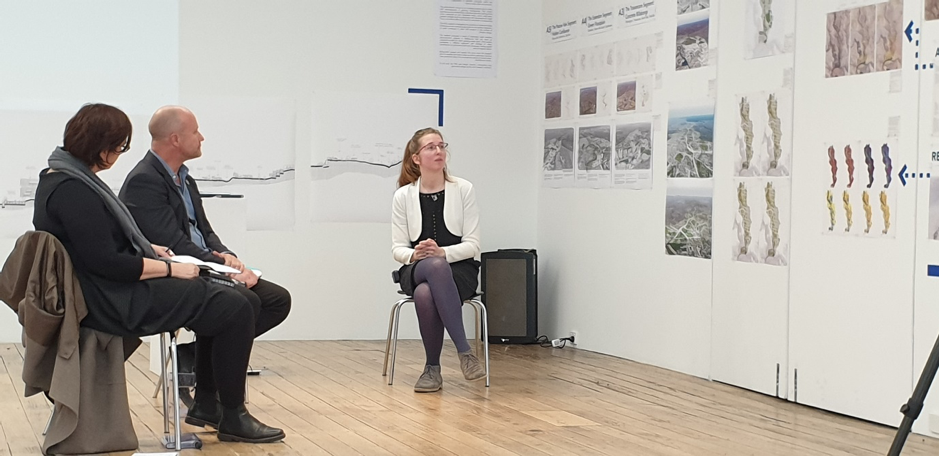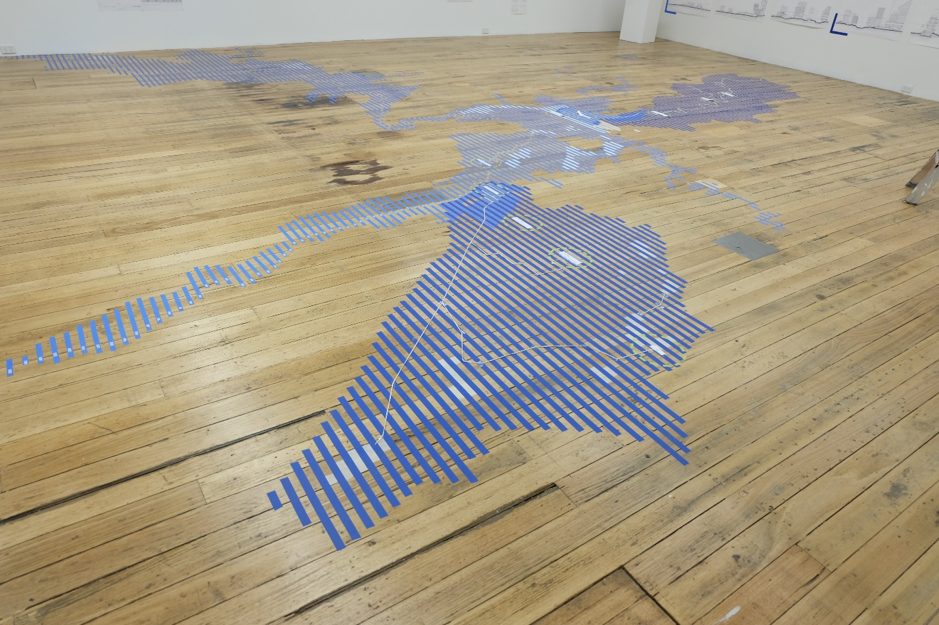Two Tranche 1 PhDs exhibit research
We congratulate two PhD students for their exhibition about their research at the MADA Faculty Gallery last month. PhDs Gyongyver Engloner and Daniel Nyandega were attached to the CRCWSC’s Tranche 1 project D5.1 – Urban intensification and green infrastructure.

Gyongyver Engloner’s thesis is Water imprint: catchment thinking as a new approach to rethink urban densification strategies, while Daniel Nyandega’s is Cycles of water and land: water-sensitive design tactics for highly modified lowlands of coastal cities.
Both PhDs were supervised by Professor Nigel Bertram and Tom Morgan.
Gyongyver Engloner’s PhD research “investigates the potential of catchment-scale thinking as a new, emerging approach for the spatial integration of water landscape in urban infill situations in the context of climate change”.
The thesis focuses on “growing water cities”—cities built on extensive water or swamp landscapes and now experiencing population growth, urban expansion, and most likely the effects of climate change since most are coastal or riverine cities.
Gyongyver argues “current business-as-usual densification practices deny the reading of the urban landscape as one integrated entity, where small-scale, gradual changes (such as piecemeal infill developments) might have a cumulative effect and result in unforeseen consequences”.
Her research sought to visualise “alternative urban evolution pathways, to raise awareness about the contradictory nature of current urban densification trends”. It proposes some exemplary water sensitive demonstration projects in Melbourne that can serve as adaptable models for other “growing water cities”—based around two case study catchments to adapt and test novel densification approaches (as part of D5.1): the Elster Creek Catchment and the Moonee Ponds Creek Catchment.
“This research links underlying environmental structure to planning policy in a way that could transform how we understand planning for sustainable infill densification and metropolitan growth, in tune with the ‘deep structure’ of local place”, said Professor Bertram. “Gyongyver’s urban design proposals seek to redefine notions of urban character through an explicit combination of local environmental and cultural factors.”

Daniel Nyandega’s research investigates highly modified lowlands—where water and land intersect in coastal cities—and their role as “early warning” territories for the threats of rising water levels. He identifies these areas as “concurrently, and problematically, important zones for contemporary urban growth and redevelopment”.
Daniel argues that “an incremental and cyclical approach is a responsible and sustainable alternative to the regimes of imposed large-scale land reclamation and topographic modifications, which have become a global norm in low-lying coastal cities from the 1960s onwards”.
His study proposes “interconnected design tactics that do not control the natural process but, instead, are integral to it, more effectively leveraging the ‘space’ between wet and dry”.
The study shows that modified lowlands are malleable and the land and water are interchangeable and impermanent, and thus the way forward is potentially through further, albeit strategic and controlled, modification.

Daniel suggests a shift in the understanding of coastal urban lowlands, and demonstrates ways “designers can engage with these volatile zones as territories in a continuous state of modification”.
“By revealing the continually evolving and highly constructed nature of coastal urban lowlands, this research demonstrates that radical local adaptation in these environments is both possible and logical”, said Professor Bertram. “It opens the palette of possibilities for both 'top down' and 'bottom up' urban and environmental regeneration in the many fluid estuarine and previously wetland environments that are currently under intensifying development pressure around the world.”
Doctoral and PhD candidates form an important component of the CRCWSC’s program. We aim to develop a group of world-class graduates who have excelled in their field of study, are industry-ready and will be ambassadors for water sensitive cities in Australia and around the world.